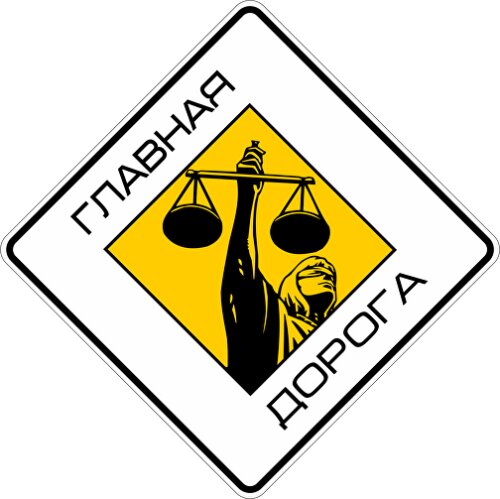Best Arrests & Searches Lawyers in Russia
Share your needs with us, get contacted by law firms.
Free. Takes 2 min.
Or refine your search by selecting a city:
List of the best lawyers in Russia
About Arrests & Searches Law in Russia
Arrests and searches in Russia are governed by a combination of constitutional provisions, federal laws, and procedural regulations. The Russian Constitution guarantees certain rights during arrests and searches, including protection against arbitrary detention and invasion of privacy. Key legal frameworks include the Criminal Procedure Code of the Russian Federation, which outlines the powers and responsibilities of law enforcement agencies during these processes, and the Law on Operational-Search Activities, which governs the conduct of search activities without a court order. The legal landscape is structured to protect individual rights while allowing law enforcement to perform their duties effectively.
Why You May Need a Lawyer
There are various situations in which individuals may find themselves in need of legal assistance related to arrests and searches in Russia. Common scenarios include being detained or searched without a clear legal basis, facing potential charges following an arrest, or experiencing rights violations during custody. Furthermore, individuals may seek legal advice if they believe evidence against them was obtained unlawfully and wish to challenge its admissibility in court. A lawyer can provide guidance on rights, represent individuals in legal proceedings, and help navigate the complexities of the Russian legal system.
Local Laws Overview
Key aspects of Russian law relevant to arrests and searches include:
- Reasonable Grounds: Law enforcement must have reasonable grounds or a warrant to perform arrests or searches, except in emergencies.
- Rights of the Detained: Individuals must be informed of their rights, including the right to silence and to legal representation.
- Search Warrants:** A search warrant is typically required for searches, although certain circumstances may allow for warrantless searches.
- Duration of Detention: Initial detention should not exceed 48 hours without a court order for extension.
- Notification of Relatives: Detainees have the right to inform relatives of their detention.
Frequently Asked Questions
What are my rights if I am detained by the police in Russia?
You have the right to be informed of the reason for your detention, the right to remain silent, and the right to contact an attorney.
Can the police search my home without a warrant?
Generally, police require a warrant to search your home. Exceptions may apply in urgent situations, such as immediate pursuit or risk of evidence destruction.
How long can I be held by law enforcement without a charge?
Law enforcement can detain you for up to 48 hours without charge. To extend this period, a court order is necessary.
Am I entitled to a lawyer during an arrest or interrogation?
Yes, you are entitled to legal representation during an arrest or interrogation. If you cannot afford one, a state-appointed lawyer should be provided.
What should I do if I believe I have been unlawfully searched or detained?
Consult a lawyer immediately to review the circumstances of your arrest or search and assess options for legal recourse.
Can evidence obtained during an illegal search be used against me in court?
Illegally obtained evidence is generally not admissible in court. Your lawyer can challenge such evidence during the trial.
How can I ensure my rights are protected during a search?
Stay calm, ask to see a warrant, and observe the procedure without obstructing the police. Immediately seek legal advice.
What are the consequences if police violate my rights during an arrest?
Violations can result in dismissal of charges, exclusion of evidence, and potential disciplinary action against officers involved. Legal action can be pursued with the help of a lawyer.
Do I have to consent to a search?
You have the right to refuse consent to a search without a valid warrant or legal justification, but you should express this calmly and clearly.
What happens if I’m arrested during a protest?
You have similar legal rights as in any arrest situation, including the right to know the charges, access to a lawyer, and notification to family. Legal counsel is advisable for navigating such arrests.
Additional Resources
For further resources, consider contacting the following:
- The Federal Bar Association of Russia: Offers legal referrals and lawyer information.
- Public Monitoring Commissions: These bodies oversee the rights of detainees and prisoners across Russia.
- Russian Ombudsman for Human Rights: Can be approached for complaints regarding human rights violations.
- Legal Aid Offices: Provide information on how to obtain free legal assistance if needed.
Next Steps
If you require legal assistance with issues related to arrests and searches:
- Document all relevant details of your arrest or search immediately and thoroughly.
- Contact a qualified lawyer specializing in criminal law and human rights in Russia.
- Research available legal aid if you face financial constraints, as there are often options for free or reduced-cost legal services.
- Stay informed about your legal rights and any updates in legislation related to arrests and searches.
Prompt legal intervention can be crucial in protecting your rights and mounting an effective defense against any charges.
Lawzana helps you find the best lawyers and law firms in Russia through a curated and pre-screened list of qualified legal professionals. Our platform offers rankings and detailed profiles of attorneys and law firms, allowing you to compare based on practice areas, including Arrests & Searches, experience, and client feedback.
Each profile includes a description of the firm's areas of practice, client reviews, team members and partners, year of establishment, spoken languages, office locations, contact information, social media presence, and any published articles or resources. Most firms on our platform speak English and are experienced in both local and international legal matters.
Get a quote from top-rated law firms in Russia — quickly, securely, and without unnecessary hassle.
Disclaimer:
The information provided on this page is for general informational purposes only and does not constitute legal advice. While we strive to ensure the accuracy and relevance of the content, legal information may change over time, and interpretations of the law can vary. You should always consult with a qualified legal professional for advice specific to your situation.
We disclaim all liability for actions taken or not taken based on the content of this page. If you believe any information is incorrect or outdated, please contact us, and we will review and update it where appropriate.
Browse arrests & searches law firms by city in Russia
Refine your search by selecting a city.















